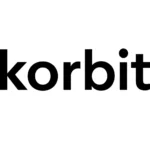South Korean commercial banks are joining forces to issue the country’s first won-based stablecoin, positioning themselves to compete in a market dominated by dollar-pegged assets.
Shinhan Bank and NH Nonghyup Bank are among the institutions planning to establish a joint venture rather than issuing separate stablecoins, according to industry sources. The banks are already participating in “Project Pax,” a cross-border remittance test run by Progmat, a digital asset infrastructure company backed by Japan’s three largest banks.
The consortium faces regulatory hurdles as South Korea lacks specific stablecoin regulations. Unlike dollar stablecoins typically backed by short-term government bonds, the won version may adopt a trust model where currency is deposited in banks and stablecoins are issued on a 1:1 basis.
Banking executives cite growing concern over the $236 billion global stablecoin market’s potential impact on traditional banking. Domestic crypto trading volume has surged to a monthly average of 11.3 trillion won since USDT was listed on Upbit last June.
More alarming for financial authorities is the 96.3% increase in funds flowing from domestic exchanges to overseas platforms, reaching 74.8 trillion won in the first half of last year.
“If banks don’t actively enter this market, it could be dominated by difficult-to-control operators,” a banking insider noted, highlighting fears of deposit outflows.
Industry participants believe a won stablecoin could simultaneously strengthen the national currency while fostering growth in fintech, remittances, and peer-to-peer services.




